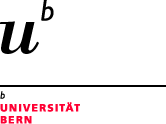Interfakultäre Koordinationsstelle für Allgemeine Ökologie (IKAÖ) |

Forschung
How can the Diffusion of Energy-Efficient Renovations of Buildings be Accelerated?
Name:
Matthias O. Müller, Dr. oec. HSG
Dissertation Committee:
Prof. em. Dr. Ruth Kaufmann-Hayoz
IKAÖ, University of Bern
Prof. Dr. Markus Schwaninger
Institute of Management, University of St. Gallen
Prof. Dr. Franz Schultheis
Institute of Sociology, University of St. Gallen
Dr. Silvia Ulli-Beer (DeeR Project Leader)
IKAÖ and Paul Scherer Institut, Viligen
Duration:
2006-2012
Homepage of the Associated Project:
DeeR
Dissertation available online "EDIS - Electronic Dissertations at the University of St. Gallen"
Abstract:
This study investigates how the diffusion of energy-efficient renovations of buildings can be accelerated, so that the emission of CO2 is reduced. The study focusses on rented multifamily buildings in Switzerland. Following the introduction and a chapter on the research design and methods, the study develops four analytical perspectives. (1) The context, within which the diffusion of energy-efficient renovations takes place is analyzed as constituting a societal problem situation. (2) A small System Dynamics simulation model of Switzerland's stock of buildings is developed and used to conduct scenario analysis. (3) The actors affecting the diffusion process are described and changes in their decision-making are analyzed. Building owners, tenants, architects and advocacy coalitions are identified as most important actors. (4) An endogenous theory regarding the main causal processes driving the diffusion process is developed. Based on these four analytical perspectives, the study develops an integrative System Dynamics model, which synthesizes the four analytical perspectives. The model is used to analyze what kind of interventions might accelerate the diffusion of energy-efficient renovations.
The study finds that there is no one single intervention point which can be used to reduce the CO2 emissions from Switzerland's buildings sufficiently. When several intervention points are addressed simultaneously, the share of energy-efficient renovations can be increased nearly to unity. However, ambitious emission reductions in the building sector can not be achieved by relying only on energy efficiency of the building hull. Therefore, heating systems which emit CO2 into the atmosphere need to be phased out. The study proposes to ban such heating systems by the year 2050. In order to enable and support building owners without professional know-how to comply with these regulations, the study proposes a business model.
